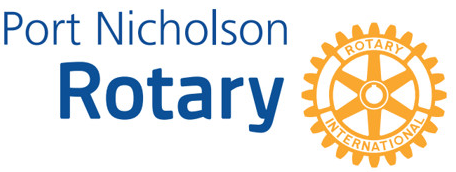Fit for the future: Boosting resilience in the face of uncertainty

Fit for the future: Boosting resilience in the face of uncertainty
Deloitte and Victoria University of Wellington, State of the State of New Zealand 2017
Presenters from Deloitte: Dave Farrelly, Partner; Cassie Favage and Jeff Brandt
Dave Farrelly told us how, in partnership with Victoria University’s School of Government, Deloittes published in 2016 their first report forming a view on how they think New Zealand is performing, focusing on Social Investment.
This year they have recently published their report for 2017 on the topic of resilience and wellbeing, Fit for the Future: Boosting Resilience in the face of uncertainty. Interviews were conducted with some of New Zealand’s brightest thinkers and most senior leaders, people from the public sector, business, non-government, media and academia.
For the purpose of the report, resilience is defined as ‘the ability to absorb, bounce back from or adapt to disruption without compromising wellbeing.’ Wellbeing is our quality of life.
From the report:
“Life in New Zealand is pretty good. We have one of the best performing economies in the developed world and enjoy comparatively high levels of social cohesion and connectedness. We are buoyed by strong institutions built on solid governance. And we boast a vibrant business environment.
“Life in New Zealand is pretty good. We have one of the best performing economies in the developed world and enjoy comparatively high levels of social cohesion and connectedness. We are buoyed by strong institutions built on solid governance. And we boast a vibrant business environment.
Together these factors underpin our wellbeing – our quality of life. We recognise that kiwi values such as fairness, connection with our natural surroundings, whanau and community, lie at the heart of what makes New Zealand one of the best places in the world to live.
If wellbeing is our quality of life, then resilience is how secure that quality of life is.”
If wellbeing is our quality of life, then resilience is how secure that quality of life is.”
Cassie Favager was one of the authors and researchers for the report, telling us the focus was particularly on household resilience, with household is defined as people residing together – but not always as a family unit, who have shared resources and an inter-dependent standard of living.
Households are prone to major and minor shocks, for example. earthquakes and change. She said that every year:
Households are prone to major and minor shocks, for example. earthquakes and change. She said that every year:
- 70% of houses face major change or disruption
- 1 in every 9 working age New Zealanders face a major drop in income
- 14% of kiwi kids go without seven or more things they need eg. a second pair of shoes, healthcare, adequate food.
Many New Zealand households are on the edge and are not able to manage at all.
Jeff Brandt posed the question, how can households create resilience? In an environment where household wellbeing is tested by disruptions, there are strong arguments for government to take an active role in increasing household resilience.
The report makes four recommendations to boost resilience and ensure New Zealand is fit for the future:
- A resilience outcome from universal social services – the report recommends government explicitly applies and evaluates resilience objective in health, education and housing policy.
- Explore policy interventions that address income factors for household resilience – the report recommends government progress interventions to address income factors for household resilience, advancing trials to build household resilience through a social investment approach and income support.
- Strength our public institutions’ focus on resilience – the report recommends government establishes a Resilience Unit within one of the central agencies with end-to-end accountability for ensuring public institutions and policy are actively boosting resilience from strategy and policy through to operations and coordination.
- Engage with New Zealanders to build a wellbeing and resilience index – the report recommends the government engages with New Zealanders to describe the aspects of wellbeing and resilience that are important, identifies appropriate indicators to measure them, and uses these indicators to guide and evaluate policy-making and government services.
Resilience underpins the security of our wellbeing. Boosting household resilience in the face of uncertainty will help ensure we are fit for the future.
Ros Fogel
Club Reporter
Club Reporter
